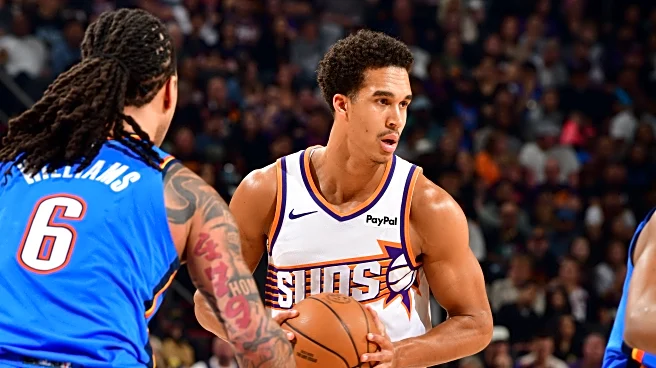What's Happening?
Vaseline, a brand owned by Unilever, has successfully increased its sales by engaging influencers as co-authors of its brand stories. The strategy involves leveraging social media to reach new audiences and drive growth. Vaseline's global brand director, Nathalia Amadeu, highlighted the approach during the IPA Effectiveness Conference, emphasizing the power of 'lots of littles' in social media engagement. The brand introduced the 'Vaseline Verified' platform, collaborating with influencers to showcase verified uses of the product, beyond traditional skincare applications. This initiative has resulted in a double-digit sales impact and recognition at the Cannes Lions Festival of Creativity.
Why It's Important?
Vaseline's strategy reflects a broader shift in marketing practices, where brands increasingly rely on influencer partnerships to enhance their reach and credibility. By co-creating content with influencers, Vaseline taps into the creativity and authenticity of social media personalities, which resonates with consumers. This approach not only boosts sales but also strengthens brand loyalty and engagement. The success of Vaseline's campaign underscores the effectiveness of influencer marketing in today's fragmented media landscape, offering valuable insights for other brands seeking to innovate their marketing strategies.
What's Next?
Vaseline plans to continue its influencer-driven marketing efforts, potentially expanding the 'Vaseline Verified' platform to include more creators and diverse content. Unilever, the parent company, is committed to increasing its investment in influencer marketing, aiming to hire more influencers and allocate a significant portion of its budget to social channels. This focus on influencer partnerships is expected to drive further growth and brand visibility, as Unilever seeks to create 'desire at scale' through creative collaborations.
Beyond the Headlines
The success of Vaseline's influencer strategy highlights the evolving nature of brand communication in the digital age. It raises questions about the ethical implications of influencer marketing, such as transparency and authenticity. As brands increasingly rely on social media personalities, the need for clear guidelines and standards becomes crucial to maintain consumer trust. Additionally, the strategy reflects a shift towards more personalized and interactive brand experiences, which could redefine traditional marketing models.










